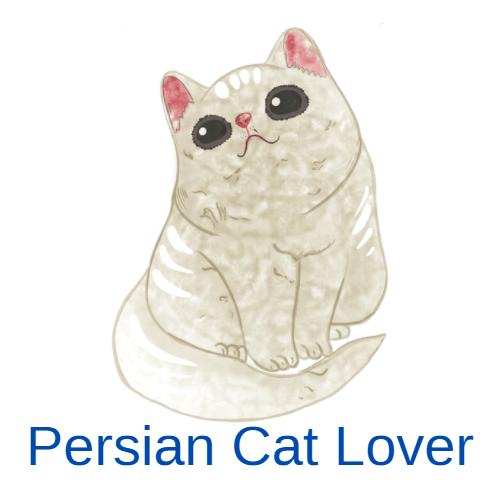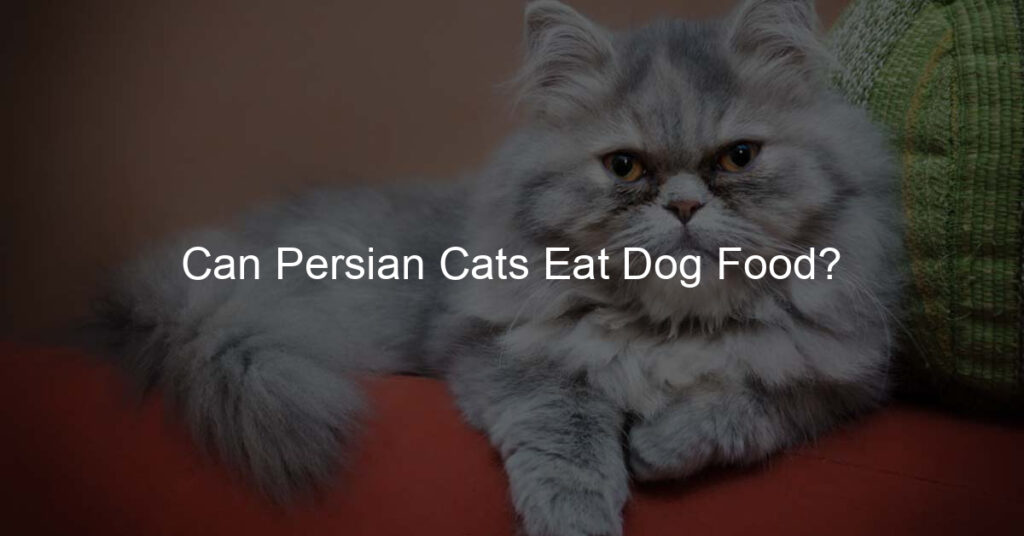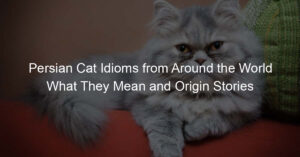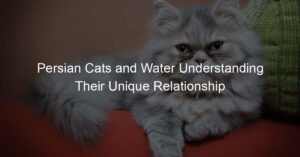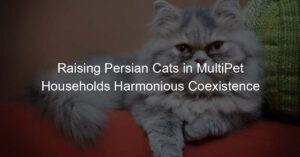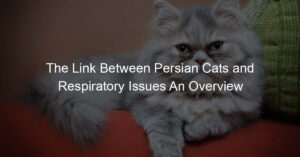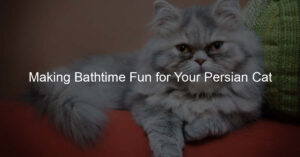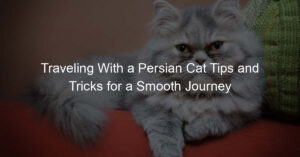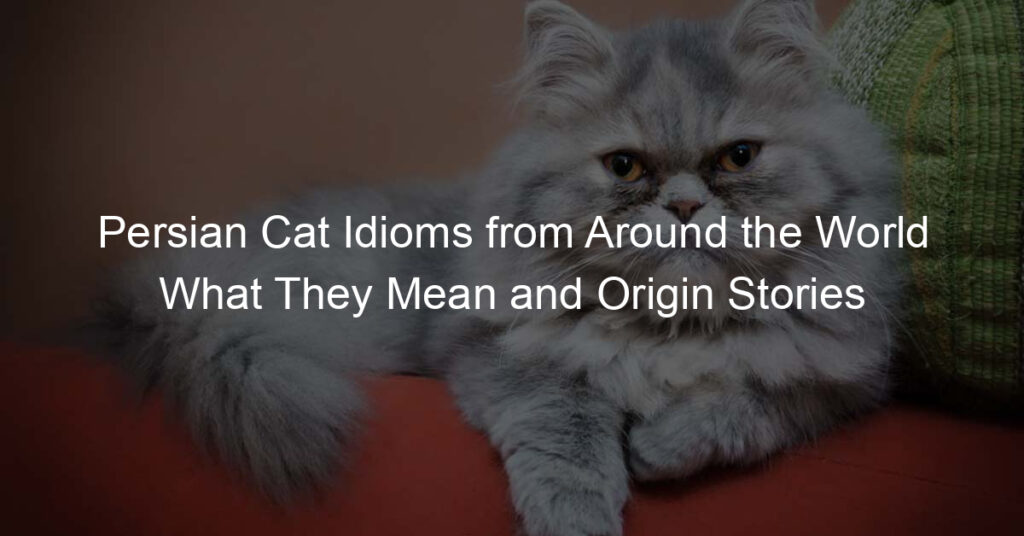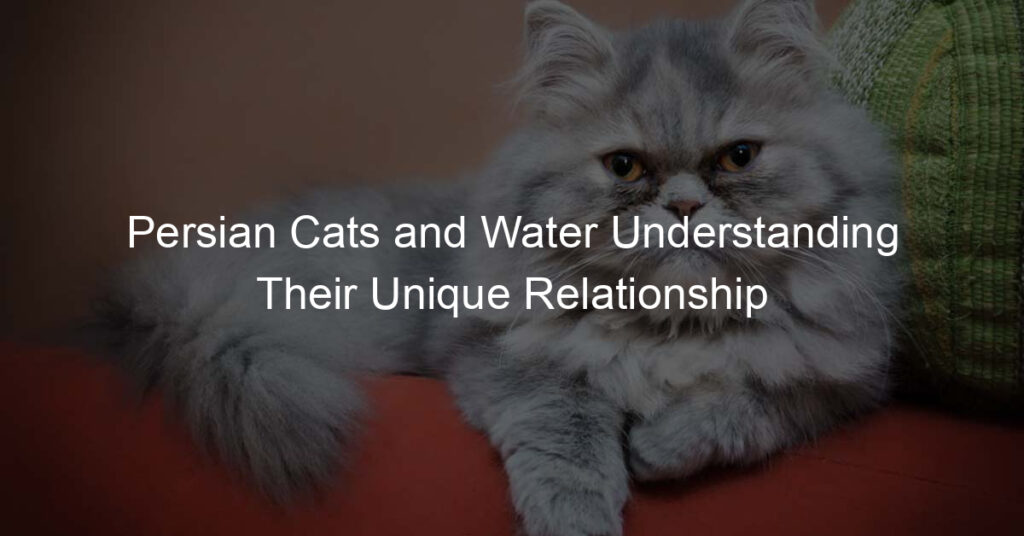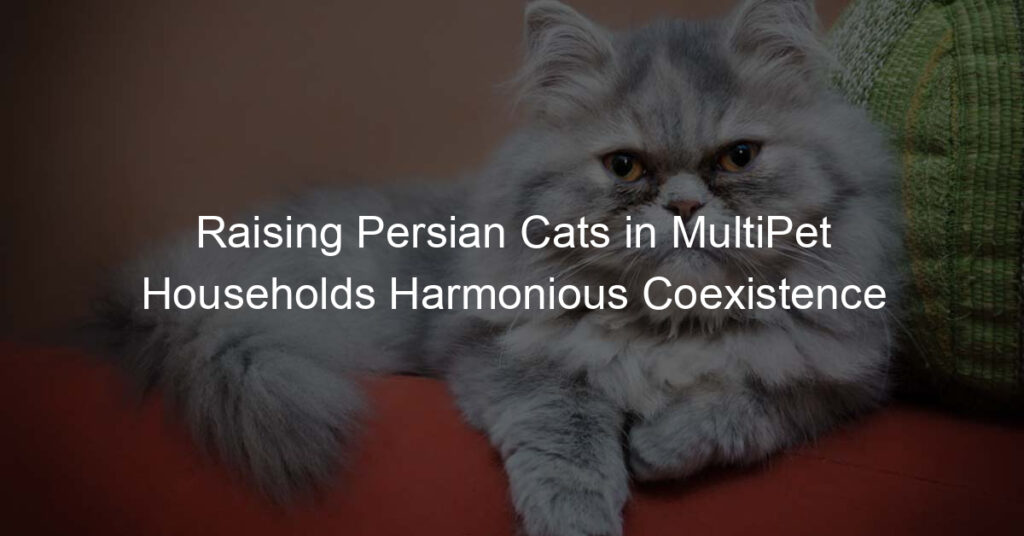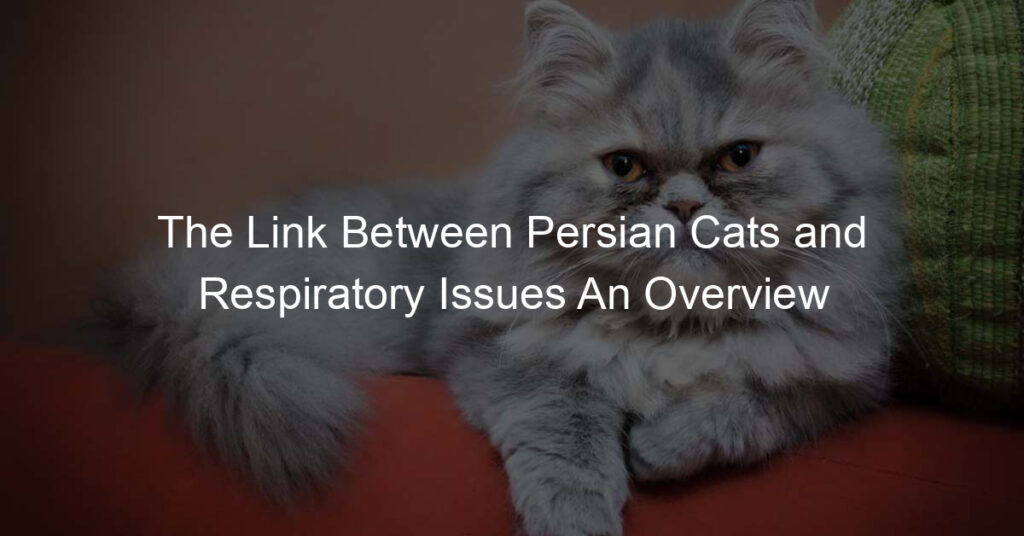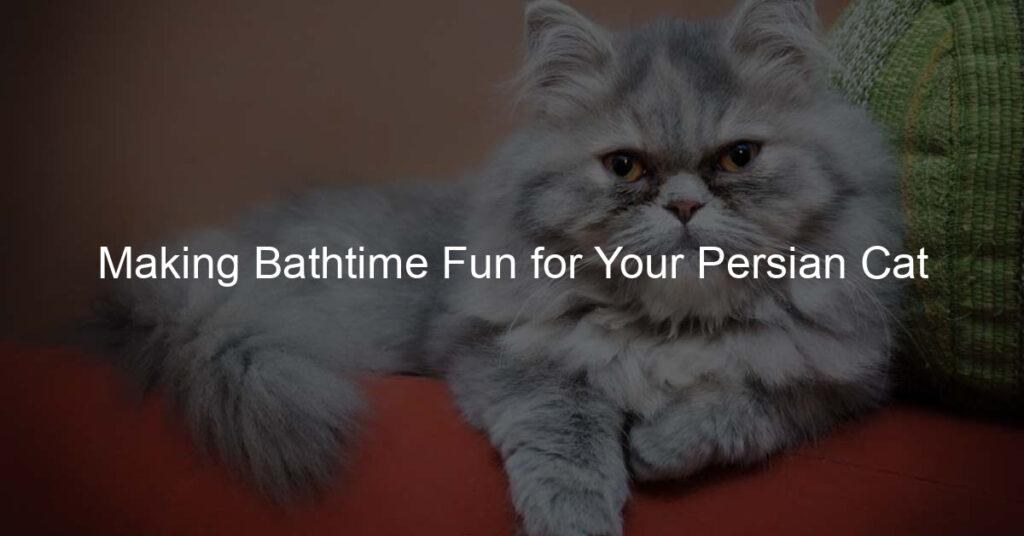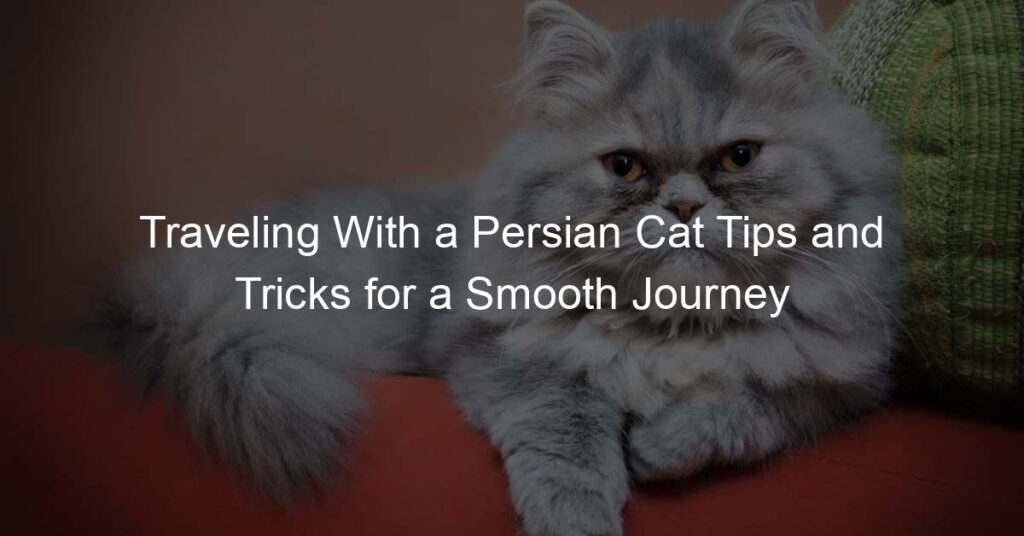No, Persian cats should not eat dog food. Dog food is formulated differently from cat food and does not contain the essential nutrients that cats need to stay healthy.
Additionally, dog food often contains ingredients that can be dangerous for cats, such as onions and garlic. Cats may find dog food tasty, but it can cause them serious health problems if eaten regularly.
Cats are obligate carnivores, meaning they rely almost exclusively on animal-based proteins to meet their dietary needs.
Unfortunately, dog food generally has less of this type of protein than cat food, so it needs to be improved as a sole source of nutrition for felines. It also tends to have higher levels of fat which can lead to obesity or other health issues.
If your Persian cat does manage to get ahold of some dog food, it’s best to contact your veterinarian for advice on how to proceed. The cat may need to be monitored and treated depending on how much was eaten.
To ensure proper nutrition, feed your Persian cat a high-quality diet designed specifically for cats. This will provide them with all of the essential nutrients they need to stay healthy. Ultimately, it is unsafe for Persian cats to eat dog food, which should be avoided at all costs.
Is It Safe To Give My Persian Cat Treats That Are Intended for Dogs?
No, it is not safe to give your Persian cat treats that are intended for dogs. Dog food is formulated differently than cat food and does not contain the essential nutrients needed for a healthy feline diet.
In addition, dog food may contain ingredients that can be potentially harmful or even toxic to cats, such as garlic or onions. Even if your pet appears to like the taste of certain types of dog treats, they should still never be given to your Persian cat, as they could lead to health problems down the road.
Instead, it’s best to stick with specialized food and treats designed specifically for cats and their dietary needs.
Remember: different species require different nutrition, so don’t forget to read the labels! Providing your Persian cat with the right food can help ensure they stay healthy and happy for years to come.
Also, if your Persian cat is a picky eater or has special dietary requirements, it’s best to consult your veterinarian before making any dietary changes to its diet. Your vet can recommend the proper diet for your pet and ensure that your cat gets all the essential nutrients they need to stay healthy.
It is not safe to give your Persian cat treats that are intended for dogs. Instead, stick with specially formulated food and treats designed specifically for cats to ensure proper nutrition and avoid potential health issues.
And if you have any questions or concerns about caring for your Persian cat, don’t hesitate to contact your veterinarian. They are best equipped to provide advice on ensuring the healthiest lifestyle possible for your beloved feline.
What Health Problems Can Result From a Regular Diet of Dog Food for Cats?
Persian cats that consume a regular diet of dog food are at risk for several health problems. Dog food is not explicitly formulated to meet the nutritional needs of cats; therefore, it can lead to nutrient deficiencies and other issues.
A consistent dog food diet can result in malnutrition, which can cause fatigue, poor coat condition, and weight loss.
Further, many formulas of dog food contain an excessive amount of fat and protein, which could lead to obesity if consumed for an extended period. Excess fat consumption could also contribute to pancreatitis or diabetes.
Furthermore, Persian cats with poor nutrition may be more prone to diseases like urinary tract infections or cystitis due to weakened immunity from a lack of essential vitamins and minerals. Thus, it is vital to feed your Persian cat food specifically formulated for cats to prevent these health issues.
It is not recommended to feed a Persian cat a regular diet of dog food due to the potential health problems that may arise. Dog food does not provide the proper nutrition needed by cats and can lead to nutrient deficiencies, obesity, and other diseases.
Instead, ensuring they receive all the essential nutrients from foods specifically designed for cats is important.
What Ingredients Should I Look Out for Before Feeding My Cat Dog Food?
When considering whether it is okay for your Persian cat to eat dog food, the main factor to consider is the ingredients. Dog food typically contains much higher levels of proteins and fats than what cats need.
While cats are obligate carnivores and require animal-based proteins, dogs are omnivorous and can digest a wider range of foods. Therefore, it’s essential to check the ingredient list on any dog food you’re thinking of feeding your Persian cat.
Look out for ingredients such as corn, wheat, and soybean meal, as these are not beneficial for cats. Also, ensure that there is an adequate amount of animal-based protein listed in the first few components of the ingredient list. This should be at least 30% of the total content.
Avoid dog food that contains artificial colors, flavors, and preservatives, as these can cause digestive issues in cats. Finally, check for any specific dietary requirements your Persian cat may have before making a purchase.
Are There Any Additional Nutrients That Cats Need Compared to Dogs?
Yes, cats require additional nutrients not found in dog food. For example, cats need more taurine than dogs do. Taurine is an amino acid that is integral to a cat’s cardiovascular health and eyesight.
Cats also require higher levels of certain fatty acids like Arachidonic acid to support skin and coat health. However, dogs generally do not need this nutrient as much as cats do, so feeding them dog food may be detrimental to your feline friend’s overall health.
Cats have different dietary needs throughout their lifecycle; kittens have different nutritional requirements than adult or senior cats, so it’s essential to feed the right type of food to each age group.
For these reasons, you are not recommended to feed your cat dog food. Instead, look for a specially formulated feline diet that meets the nutritional needs of cats.
This will ensure that your pet gets all the necessary nutrients to stay healthy and active.
